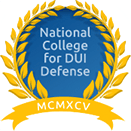Union County Drug Possession Attorneys
The most common variety of drug offense in New Jersey is a possession charge. This violation applies where a controlled dangerous substance (“CDS”) is possessed for personal use as contrasted with drug distribution. Nonetheless, a conviction for possessing drugs is a third degree crime in the vast majority of cases. It also results in a 2C criminal record, fines and a mandatory drivers license suspension of six (6) to twenty-four (24) months. No one should have to live with penalties like these, especially when our attorneys have an excellent success rate in escaping a guilty finding. These favorable results are attributable to many factors including our decades of experience, service as prosecutors and commitment to fighting for clients. Whether you are facing a felony possession charge in Elizabeth at the Union County Superior Court or a disorderly persons offense in the municipal court of Springfield, Roselle Park, Elizabeth, Cranford and Linden, we welcome the opportunity to discuss the particulars of your matter in a free initial consultation. An attorney on our staff is available to assist you immediately at 908-272-1700.
What Constitute “Possession” of Drugs?
It is illegal to knowingly or purposely obtain or possess a controlled dangerous substance (“CDS”) without a proper prescription under N.J.S.A. 2C:35-10. “Possession” can arise in three (3) ways under this Law:
- Actual Possession: actual possession occurs when a person physically controls, holds, or houses the illicit materials. This is the most straight forward manner of possession and does not require the court to consider the surrounding circumstances to determine whether possession occurred.
- Constructive Possession: a person constructively possesses a drug when they are able to exercise current and almost immediate control by direct or indirect means in a manner that would affect the item during the time in question. Simple presence where the drugs, contraband, or illicit materials are found is not sufficient to establish constructive possession. Drugs found in an automobile often result in a constructive possession situation. If the drugs are in plain view in the vehicle and an individual is aware of their presence, constructive possession is likely established. However, the drugs do not need to be in plain view for constructive possession to apply. Furthermore, police and courts are permitted to infer a person’s knowledge of the drug’s presence from the circumstances surrounding the situation.
- Joint Possession: an individual can be charged, and later convicted of, possession of a CDS if they are found to be in joint possession of the drugs with one or more other individuals. Courts will determined whether joint possession exists based upon the circumstances surrounding the situation. Factors that the court will consider include: the relationship of the individuals, whether they maintain a commercial or personal relationship, statements made by the persons involved, conduct of the persons involved, whether the parties traveled together, whether they pooled money or resources, the amount of drugs or illicit substances involved, and whether one party had sole possession of the drugs. Based upon these considerations, courts can find a person guilty of possession of a CDS without ever having actual or physical control over the drugs.
As you can see, possession cases have a tendency to become very fact sensitive, particularly where the accused is not in direct custody of the drugs. An attorney who know how to analyze and attack the facts effectively can be a huge asset in avoiding a 2C:35-10 conviction.
Grading of Drug/CDS Possession Charges
If the controlled dangerous substance is contained on Schedule I, II, III or IV and is not marijuana or hashish, the offense is a third degree crime. If the drug is contained on Schedule V, possession is a fourth degree crime. Possession is a disorderly persons offense when it involves 50 grams or less of marijuana.
Penalties for Possession of Drugs
Third degree CDS possession carries a prison term of up to five years and a maximum fine ranging from $25,000 to $75,000.00 depending on the drug that was possessed. Fourth degree possession results in a jail term of up to 18 months and a maximum fine of $15,000 unless the charge involves marijuana, in which case the fine can reach $25,000. Simple possession of marijuana or hashish, a disorderly persons offense, can trigger up to six months in jail and fines/assessments that can exceed $1,000. As previously stated, there is also a driver’s license suspension of 6-24 months for anyone found guilty of possession of CDS.
Union Township NJ Drug Possession Lawyers
The lawyers in our Union Township Office have over 100 years of combined experience defending possession charges throughout Union County. We have the skills necessary to insure that you have every opportunity to avoid a conviction. An attorney at the Law Offices of Jonathan F. Marshall can help you with any CDS possession offense you may be facing, including a charge involving:
Do not be foolish and think that your offense is something that can be resolved favorably without a knowledgeable and skilled criminal defense lawyer. Our attorneys can help you in ways that you probably do not even realize since the possession laws in New Jersey can be complicated whether it is an indictable possession charge in Elizabeth or a misdemeanor that you are facing in municipal court, for example, in Plainfield, Roselle, Rahway, Union or Hillside. Irrespective of the Union County venue in which your possession offense is pending, our firm has the know-how to assist you. We have successfully defended individuals charged with possession of drugs in every court in the county and, in some cases, hundreds of times. Attorneys on our staff are ready to answer your questions and discuss how to achieve a favorable result on your behalf by calling 908-272-1700.












